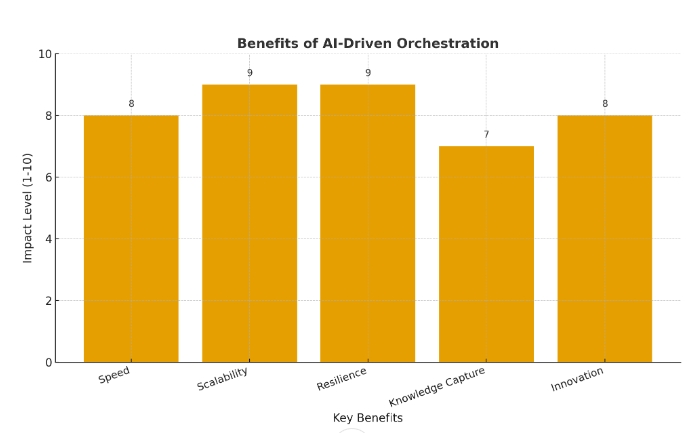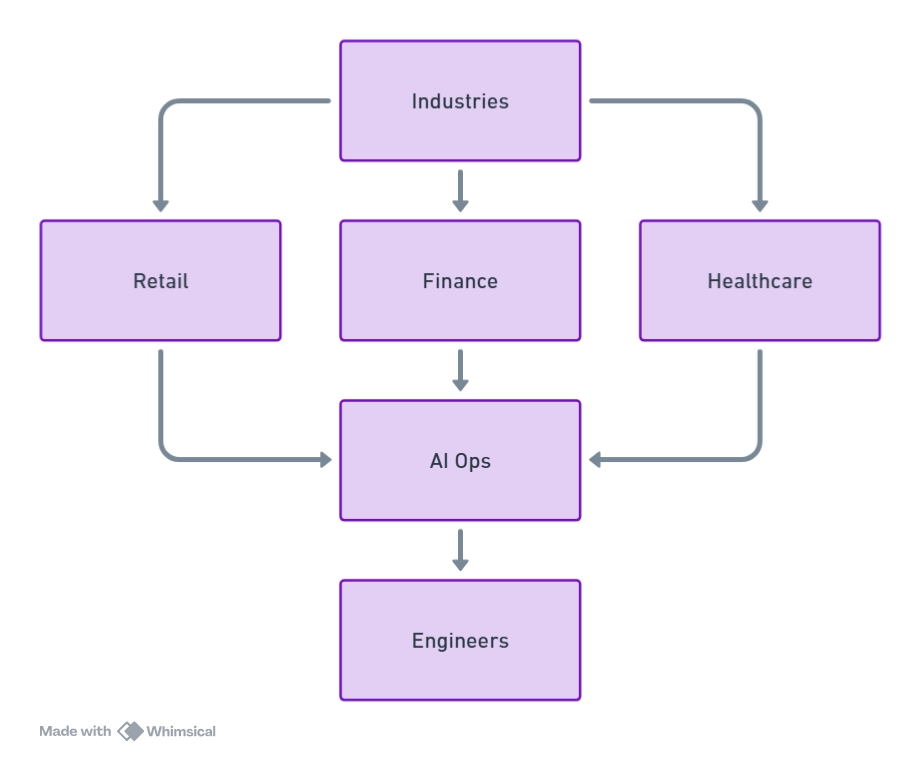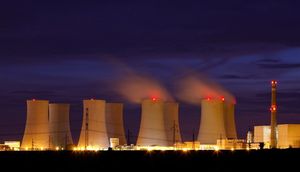DevOps specialists have been the foundation of contemporary software delivery for more than 10 years. Building automation pipelines, supervising cloud infrastructure, and making sure apps function properly have been the main focuses of their jobs. However, a significant change is taking place as company infrastructures become more intricate: artificial intelligence is starting to plan the specific processes that engineers used to personally review.
Systems using AI are becoming active decision-makers in DevOps, replacing manual deployment script customization and dashboard monitoring. Without the need for human participation, these systems are able to recommend improvements, combine millions of indications across worldwide infrastructures, and even do remediation. For the profession, the development marks a sea change.
"Replacing engineers is not the aim here," industry analysts say. "They need to redefine what they do."
The Current Role of DevOps
DevOps professionals handle an extensive range of responsibilities: developing Continuous Integration/Continuous Delivery pipelines with Git or using GitLab, running farms with Kubernetes, etc., writing foundation code with Terraform, among other platforms, and keeping track of performance with tools like Prometheus, Grafana, etc., and Splunk. They act as the primary line of protection during interruptions, evaluating records, and coordinating replies.
Despite being efficient, this manual monitoring is struggling under the additional demands. Human intelligence alone is unable to handle the massive volume of data from telemetry or predict every failure mode in situations including multi-region cloud installations, worldwide traffic, and constant user demands. Developers still manually work together between teams, build custom scripts, and look at raw metrics in numerous organizations. The method is effective in small settings, but in the age of always-on systems as well as distributed service architectures, it is difficult to expand.
The Rise of AI in DevOps
AI has started to take over. Predictive alarms and anomaly detection were given by early AIOps platforms. Large computational models of languages (LLMs) and agentic artificial intelligence (AI) systems have emerged more recently; these systems can generate deployment configurations, reason about structures, and help with incident management.
Artificial intelligence-powered root cause analysis that connects particular code contributions to Kubernetes pod failures is one example now in use.
- Self-governing remediation agents that, in response to threshold breaches, initiate rollbacks or scaling events.
- CI/CD generative AI that uses natural language instructions to create workflow scripts and policy files.
Such developments represent the infancy of what many refer to as orchestration powered by intelligence.
From Engineers to Orchestrators
This shift, according to specialists, is from engineers acting as finishers to experts acting as orchestrators.
- Defining intent: Engineers outline security guidelines, compliance regulations, and performance targets.
- AI execution: Current issue resolution, service scaling, and deployment adaptation are all handled by intelligent agents.
- Oversight: Professionals modify governance policies, improve AI models, and validate AI judgments.
The theory aims to reconsider human effort rather than replace it. Future DevOps professionals are like air traffic controllers. Where judgment is crucial, humans still choose paths, safety barriers, and interventions while AI systems handle volatility.
Skills for the Future
Specialists in DevOps need to acquire new skills in light of the evolving landscape. Among the most crucial are:
- AI skills: Being aware of the potential and constraints of AIOps platforms.
- Governance and policy: establishing secure operating parameters for self-governing systems.
- Software architecture: Including AI orchestration into reliable frameworks that maintain observability.
- Ethical supervision: Making sure automated choices fit economic, compliance, and equity standards.
- Cross-cultural cooperation: Assisting corporate executives, data professionals, and AI engineers.
According to experts, these changes necessitate reconsidering job training, qualifications, and education.
Benefits of AI-Driven Orchestration
Advocates of integrating AI cite a number of benefits.
- Speed: Reduced barriers and quicker installations and incident solutions.
- Scalability: The capacity to control countless signals per second over extensive networks.
- Resilience: Proactively identifying and fixing faults before consumers notice them.
- Knowledge capture: Summaries and narratives created via artificial intelligence that are turned into live records.
- Innovation: Instead of working on boring responsibilities, engineers may concentrate on strategy and design.
These advantages give a lot of businesses an advantage over their competitors.

Figure 1: AI-Driven Orchestration Benefits
Challenges and Risks
There are a few reservations about the shift. One of the biggest obstacles is still trust in AI systems. Transparency and trustworthy safeguards are necessary for engineers and executive teams to have faith in artificial intelligence-based judgments.
Other difficulties consist of:
- Over-reliance: If precautions aren't in place, blind reliance on AI can give rise to mistakes.
- Skill gaps: It's critical to keep training experts in AI/ML principles.
- Cultural shift: Teams need to adjust to new processes that move away from traditional management and toward orchestration aided by AI.
It will be crucial to strike a balance between accountability and efficiency.
Real-World Transition Examples
AI-driven orchestration is already being used in several industries.
- Retail: AI agents auto-scale clusters, rollback problematic services, and keep an eye out for surges during seasonal load tests.
- Financial trading: AI finds irregularities in latency at the millisecond level and fixes them before they have an impact on market activity.
- Healthcare: AI correlates outside cloud statistics with internal hospital parameters for ensuring patient portal uptime.
In every situation, AI takes care of the operations' hard lifting, with engineers still in control of methodology and validation.

Figure 2: Real-World Transition Flow: AI Ops and Engineers
Future Outlook
Researchers estimate that completely new roles may appear in businesses by 2030:
- AI Operational Designer: Creates Continuous Integration and Continuous Delivery AI processes.
- Observability Orchestrator: Oversees self-governing surveillance systems.
- AI Ethics DevOps Officer: Assures automated judgments are fair and compliant.
Recovery speed and innovation are likely to increase for organizations that use AI-driven administration. It could be challenging for those who are still using manual DevOps methodologies to keep up.
Removing programmers from the process is not the way of the future for DevOps. Repositioning them to create intelligent systems, direct AI choices, and guarantee that business operations continue to be in line with company goals and human values is the goal.
Author’s Bio

Venkat Rama Raju Alluri is a Management and Cloud Architect, who has managed digital transformation initiatives at J. Crew, Novartis and Oracle. He focuses on AWS, Kubernetes, Linux GitOps and enterprise automation, having worked on the development of cloud-native infrastructure and architecture and multi-region disaster recovery.
A successful writer and scholar, Alluri has authored on automated DevOps, the safety of digital currency, and artificial intelligence and published in peer-reviewed journals. His inventions are AI-driven retail solutions, AI-powered log analysis tool with Splunk, Prometheus, and Amazon Bedrock.
Media Contact
Company Name: Coneberry
Contact Person: Vijay
Email: Send Email
Country: United States
Website: coneberry.com







